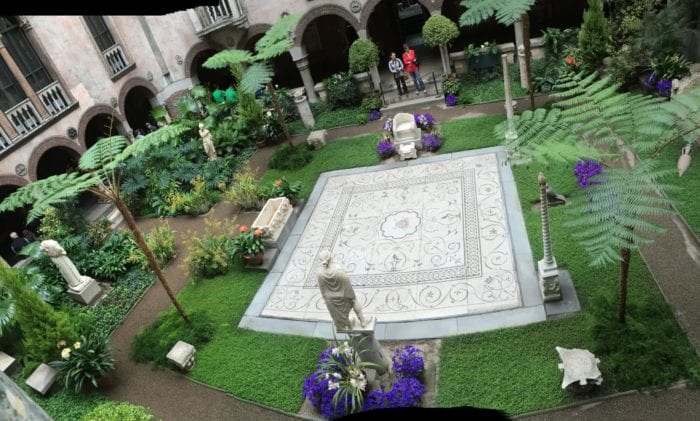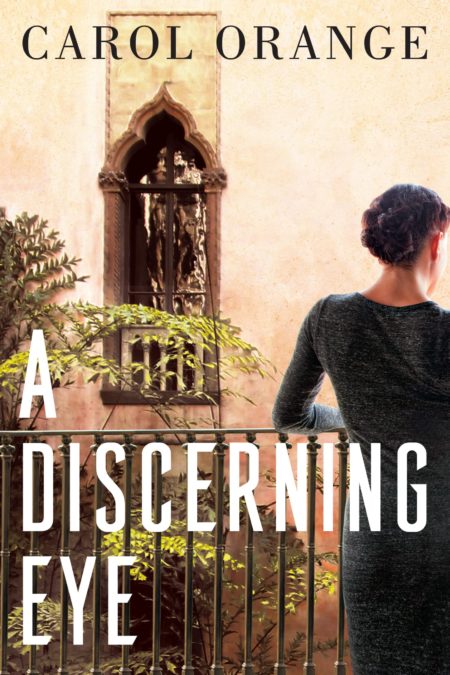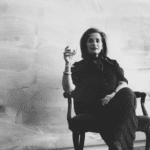
March 19, 1990: The Day After
It had been almost nine months since Antonio had died. On many nights after Alexa was asleep, Portia tiptoed into the library and replayed his saved phone messages. “Hi Portia . . . it’s me calling to check in with you.” Hearing his voice lent credence to her fantasy that Antonio was still alive. When she awoke the next morning the bleak reality made her weep until Stansky comforted her in his arms. She was grateful to him and also to Alexa who made her laugh with imitations of Mr. Snow, her hapless math teacher. Yet while encouraging her artists’ creativity brought her great satisfaction during her workday, recurrent nightmares about her house burning down unnerved her.
On this chilly March afternoon Portia closeted herself in her gallery. Her office space offered warmth and comfort. She was doing what she did best: moving photographs of artists’ work around her desk as she designed the new show. The gallery was officially closed, with the phones switched off, a good time to organize Stockwell’s April 14 opening. He’d promised to finish his large, evocative landscapes, even if it meant staying up late for the last few nights.
 While the misty tinge of his abstractions might remind collectors of Mark Rothko, they acknowledged Stockwell’s gestural brush strokes could only be his. Portia’s exhibition space served as a home for ten emerging artists’ paintings, lithographs, drawings, and sculpture. She employed three twenty-something art history graduates who impressed potential buyers with their knowledge. And she felt proud when her artists’ shows were well reviewed in the Boston Globe and ART News. After two years of struggle, the gallery had finally hit an upward swing, though so far none of her artists had become famous.
While the misty tinge of his abstractions might remind collectors of Mark Rothko, they acknowledged Stockwell’s gestural brush strokes could only be his. Portia’s exhibition space served as a home for ten emerging artists’ paintings, lithographs, drawings, and sculpture. She employed three twenty-something art history graduates who impressed potential buyers with their knowledge. And she felt proud when her artists’ shows were well reviewed in the Boston Globe and ART News. After two years of struggle, the gallery had finally hit an upward swing, though so far none of her artists had become famous.
Toward the end of the day Portia reached for a pile of bills that lay on her desk. Underneath the top envelope was Monday’s Boston Globe. The lead headline jumped out: $200M Gardner Museum Art Theft 2 Men Posing as Police Tie Up Night Guards
With shaky hands, Portia continued reading the story, running one finger down the list of stolen art. A mention of Vermeer’s masterpiece, The Concert, stopped her. Placing her elbows on the desk she covered her forehead with her hands. “No, no, no,” she shouted at the empty room.
After a few moments she picked her head up. Her forehead felt heavy, throbbing with tension. The framed poster of the Gardner Museum’s flowering courtyard on her office wall caught her eye. Their special place. The Gardner. She couldn’t stop crying until she looked at her watch and realized her family would be waiting for her. She somehow managed to gather a few papers from her desk and jammed them with the newspaper into her leather bag. She hoped that dinner with Stansky and Alexa would help restore her spirits. Instead of walking home, she took a taxi the short distance from her Newbury Street gallery to their South End townhouse with its yellow door. Monticello Chrome Yellow had the effect she’d intended when she chose it, much to Stansky’s chagrin. He feared the glow would attract too much attention. She convinced him yellow symbolized warmth and honesty.
Portia fumbled in her purse for the keys and shivered as she turned the lock. She strode down the narrow hall, overheard Stansky and Alexa in the kitchen, and threw open the half-closed door. The bright lights reflected against the three floor-to-ceiling windows, the mustard yellow drapes reached the black-and-white tile floor, the Welsh dresser was festooned with blue and white English crockery, the clunky divan with its flowered cushions sat in a corner, and Normanno Soscia’s aquatints of mythological heroines hung along the wall.
[Read our interview with the author here]
“What’s wrong?” Stansky asked. “You look awful.” “Thirteen pieces were stolen from the Gardner.” “Oh, no.” Alexa, in her striped overalls, rushed over to give her mother a hug. Stansky, who had been at the stove sautéing pasta sauce, dropped his mixing spoon. “I didn’t hear about it,” he said. “I was in the dark room all day.” Portia felt the kitchen’s sanctity, redolent with pasta Bolognese, oil-drenched chicken, and carrots braised with mushrooms, was violated by the robbery. Alexa sat next to her. Stansky poured her a glass of Pinot Grigio. She was grateful to be home. “I’ve lost the last link to my brother.” “They took The Concert?” Stanksy’s bushy eyebrows rose as he gulped his wine. She nodded. “Next Monday I’m supposed to lead the Gardner tour. How can I face those empty frames? If the police don’t catch whoever did this, I’ll never see that painting again.” Alarmed at hearing the tone in her voice—its register must have dropped an octave—she felt an accumulated sorrow in its depth.
Excerpted from A Discerning Eye By Carol Orange. More info and books available at carolorange.com.
Carol Orange is the author of "A Discerning Eye"

